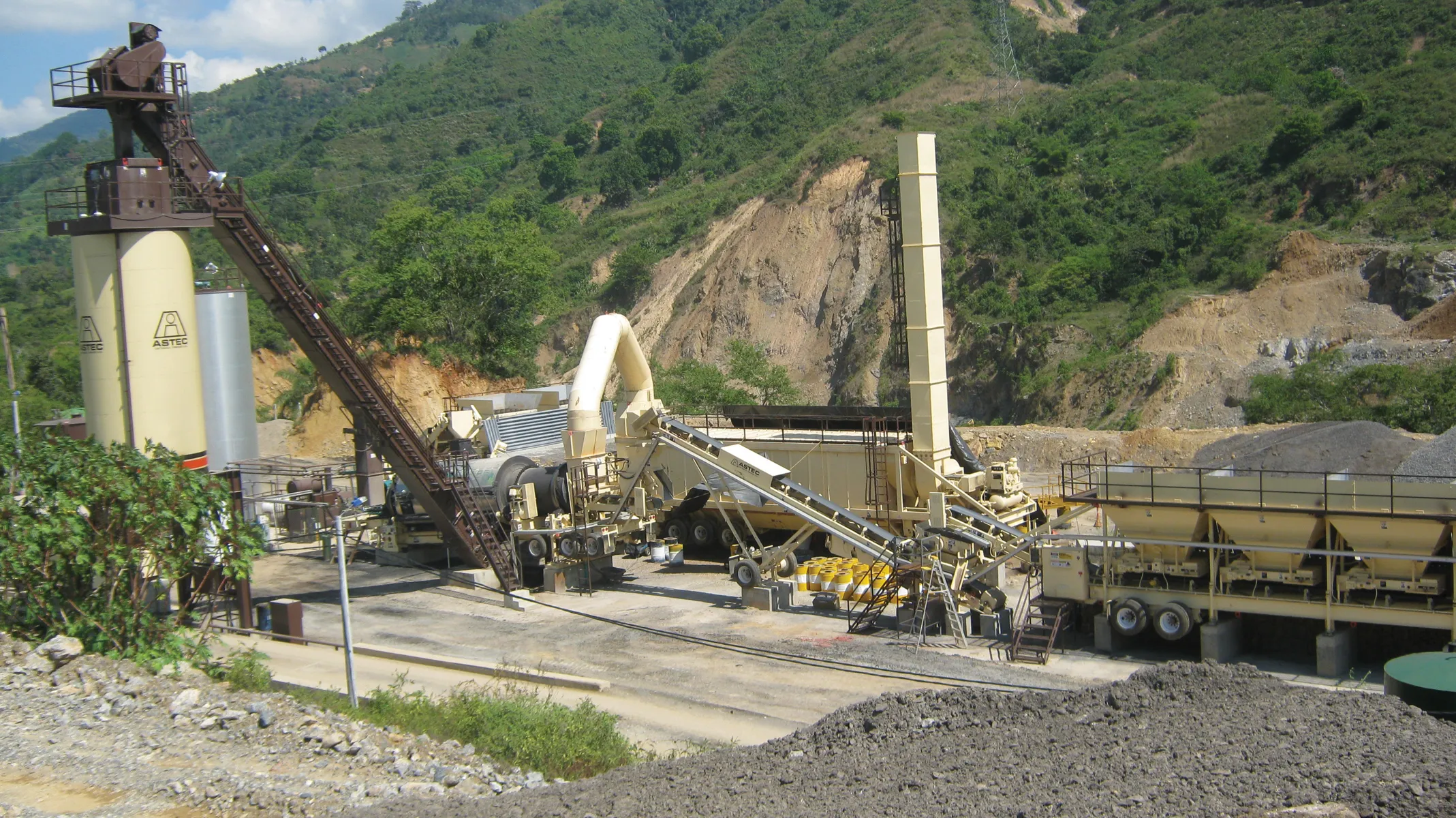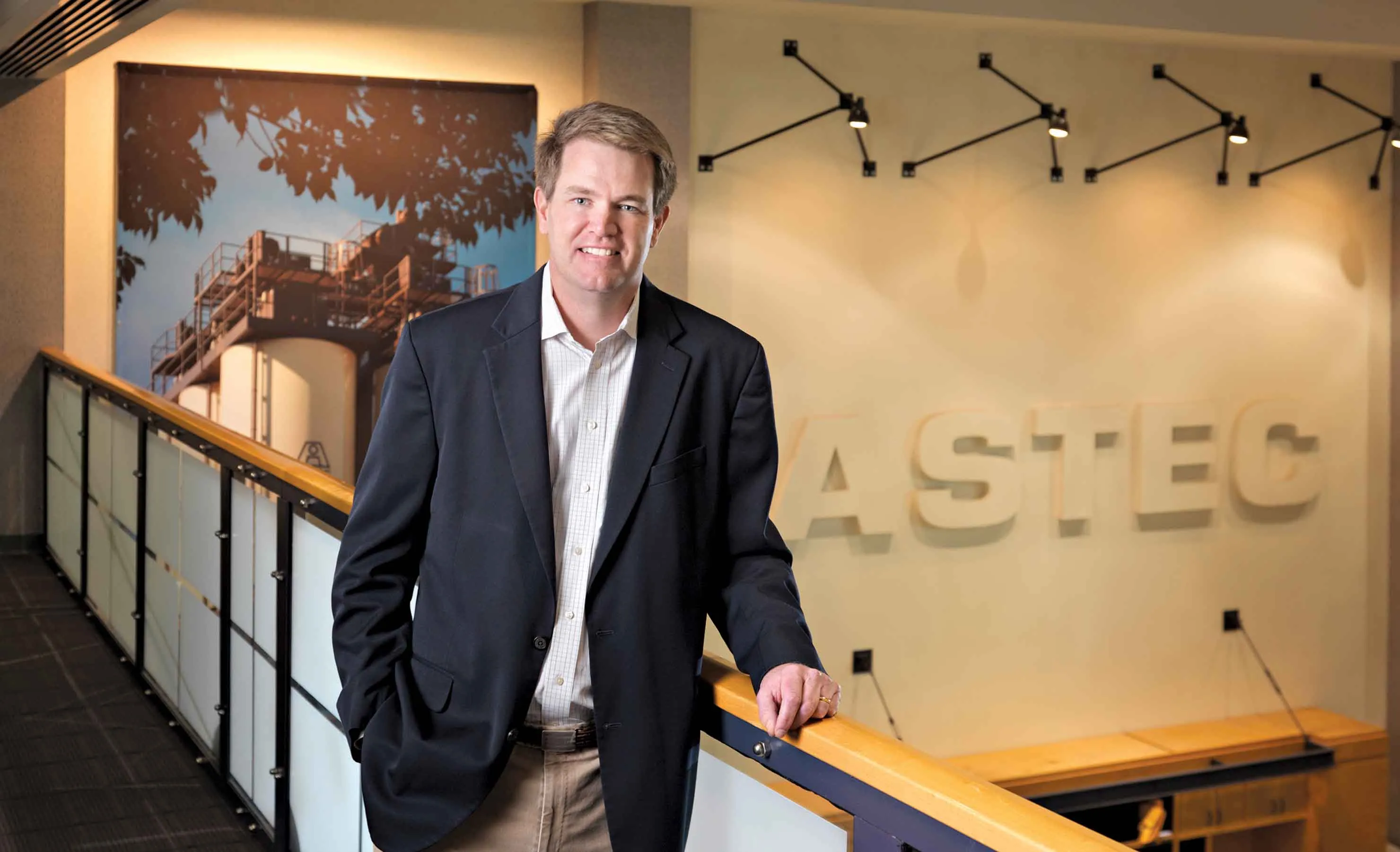A Colombian contractor tackles specifications for asphalt road work with Astec equipment.Award-winning Colombian contractor MHC has upgraded its Astec Portable Double Barrel plant to handle highway and other projects. The plant, installed in Bucaramanga, equipped with two RAP [recycled asphalt pavement] bins, a Double Barrel Green System, and one New Generation silo was bought by MHC in 2009. It has now received a second silo and a truck scale extension.
April 10, 2012
Read time: 4 mins

A Colombian contractor tackles specifications for asphalt road work with Astec equipment
Award-winning Colombian contractor MHC has upgraded itsThe plant, installed in Bucaramanga, equipped with two RAP [recycled asphalt pavement] bins, a Double Barrel Green System, and one New Generation silo was bought by MHC in 2009. It has now received a second silo and a truck scale extension.
MHC is a USO 9001:2000 corporation presided over by Mario Huertas Cotes, and is a leading road contractor with headquarters in Colombia’s capital Bogota.
Established in 1975, it specialises in engineering and mining as well as dams, bridges, and heavy road construction using asphalt. On some of these roads MHC has remained as a concessionary partner with all maintenance operations.
In 1994, the company obtained the coveted National Engineering Prize for the Sesquile Dam, and it currently has two contracts with
One contract involves the rehabilitation and maintenance of roads located in Montería in the Department of Córdoba with a mix use of 15,000tonnes per month at an elevation of 305m above sea level.
One of the issues relating to the contract was the procurement of aggregates, which led the contractor to use limestone with “great results.”
The second contract was for the study, design, land use, social, environmental, and construction aspects of a 205km long, four-lane highway between Bucaramanga and Cúcuta in the Department of
The main issue with this project was obtaining the land to install the asphalt plant and crushing equipment. The end result was installing the Astec equipment in the limestone quarry at Surata outside the city of Bucaramanga.
According to president Mario Huertas, the Astec plant was the best solution to guarantee a permanent and ready supply of hot mix while meeting the contractor's specifications.
“The delivered product is very homogenous and the plant is well below the local environmental gas emissions standards and calories (heat) emissions to the atmosphere,” he explained.
“The 95% uptime and safety features of the plant have greatly contributed to an overall cost reduction in production.”
He also noted the reduction in the cost of consumables, burner fuel and a reduction in the oxidation of the daily mix production.
Huertas praised the innovation of the Astec equipment when it came to the Double Barrel Green System and New Generation storage silos.
“The Green System added to the Double Barrel drum mixer allows me to reduce fuel consumption and increase production. The warm mix asphalt does not need the addition of expensive commercial additives: using water with the mix along with the liquid asphalt cement is all that is needed.
“We are able to store mix in the Astec New Generation HMA [hot mix asphalt] storage silo for four days without the loss of mix quality.”
By keeping the silo full, the plant is always ready to meet customer demand; equipment efficiency is maximised and material waste is reduced.
In storage mode, the silos are completely sealed at the top and the bottom to prevent oxidation.
“I have become convinced that silos allow you to increase daily production with a substantial reduction in operational costs for the mix made on the previous day, which allows a better and more efficient use of human resources to mix transport trucks to feed the road works,” said Huertas.”
To date, MHC has three
“The relationship with Astec is a partnership that goes beyond basic customer service,” acclaimed Huertas.
“The Astec Group knows its products; knows how to relate the technologies to my applications, and knows how to provide excellence in customer service. This is evident through all Astec divisions and the people that represent the company, including our Colombia Astec agent, Rodriguez and Londono.”
Meeting the standards required by MHC's customers is not a problem, according to Huertas, who said Astec listened to his technical and business suggestions, thus allowing him to purchase equipment to provide better production, a reduced maintenance cost, and a better mix quality to his operations.
“In terms of service, Astec has been very effective, receptive, timely, and very experienced. With the conditions in Colombia, we need a good response on parts for routine maintenance.
“Astec has maintained the added value with its customers through its post-sale relationship between local agents and end customers.”









